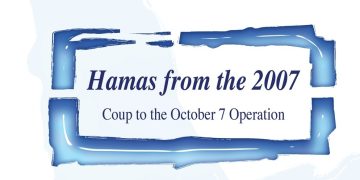Donald Rumsfeld died on June 29 at the age of 88, in Taos, New Mexico. Not surprisingly for an American age of galloping historical amnesia, hyper-partisanship and massive ambient surreality, his death touched off much commentary. It has ranged from the critical circumspection of elite media to the inanities of shot-from-the-hip social media, and every other kind of media in between. Also unsurprising, most of it focused on Rumsfeld’s role as Defense Secretary in the George W. Bush Administration, particularly his role in the Iraq War and its aftermath.
Not surprising, but bound to produce myopic history in readers’ minds if left unalloyed by wider perspective. The Bush 43 Administration made three major errors regarding the “greater” Middle East that reverberate still today, not just one–and Donald Rumsfeld’s role in the other two are also part of his legacy.
The second major error was the transformation of the mission in Afghanistan from one of defensive, punitive regime change, using a small and sleek U.S. military profile, to an ambitious and protracted U.S.-led multinational occupation designed to remake both the Afghan state and its society. Rumsfeld’s role in this transformation is hard to summarize, but one thing is and has always been clear: Rumsfeld was often mistakenly lumped into the “neoconservative” camp or school, and error enabled in one of two ways, and usually both ways: not understanding neoconservatism’s origin and nature, and so defining it too lazily and broadly; and not knowing anything much about Donald Rumsfeld. Alas, a sturdy rule in all walks of life demands our acknowledgment: Ignorance emotionalizes and conflates its objects of attention, while knowledge analyses and distinguishes them.
Rumsfeld was a nationalist/realist hawk who was in no way a democracy evangelist or a secular missionary. He was not a “nation-building” advocate, to the point that he, with a Princeton education, knew the very term to be a misnomer: People meant “state-building”, not “nation-building”, the problem being that they didn’t know the distinct dictionary definitions of the two English words. Whatever they called it, Rumsfeld was skeptical of it and–though you wouldn’t know it from the reigning superficial accounts of events–here he shared the view of Secretary of State Colin Powell, his opposite on many other of the Bush 43 Administration’s policy debates. He went along with Administration neoconservatives when it suited his main purpose, the transformation of the post-Cold War U.S. military, which flowed from his narrow construal of his job as Defense Secretary. But that did not make him a dyed-in-the-wool neoconservative, or any kind of neoconservative.
What is harder to explain in a small space is why Rumsfeld, who designed the lethal light footprint that toppled the Taliban regime, failed to prevent the subsequent Afghan mission creep. That creep has led all the way, nearly two decades later, to the recent Biden Administration decision to scuttle the policy and accept what now looks to be the rapid collapse of the Ashraf Ghani government into the hands of either a Taliban 2.0 regime, reignited civil war, or perhaps both. If Rumsfeld said to himself or others in his last few weeks of life something to the effect, “I knew this fool’s errand would fail and this would happen”, he would have been justified then and correct now.
The third major error was to allow Hamas to run in the Palestinian legislative elections of January 2006, despite the fact that the elections were premised on the Oslo Accords whose core principles Hamas vigourously rejected. That decision, dominated on the U.S. side by White House and State Department principals, led in turn to a slim Hamas victory, barely surreptitious efforts by several parties to deny Hamas its electoral due, and ultimately to the June 2007 coup that ousted the Palestinian Authority from Gaza and ensconced Hamas in its misrule there ever since.
That then led to the political/diplomatic defenestration of the Palestinian Authority, placing new limits on Palestinian-Israeli dialogue and reinforcing rightwing tendencies in Israeli politics, opened a new route for Iranian influence in the Levant and strengthened the tide of Islamist political authoritarianism region-wide, and of course resulted in a serious of ruinous mini-wars that have helped recalcitrant politicians and hurt civilians on all sides. Luckily, if one can imagine using such a word in this context, the since-repeating tragedy of Gaza does not threaten to swallow up large swaths of the region, which is bathed in other poisons sufficient to explain its many troubles. It’s just a local calamity.
Besides, what matters for our present purpose is that Donald Rumsfeld had little to no role in the Palestinian issue circa 2006-07, nor did anyone who worked for him at the time. Main point: Rumsfeld wasn’t the only senior Bush 43 Administration official who made mistakes, and few of his mistakes were made alone.
The True, the False, and the Missing
A good deal of the new Rumsfeld post-mortem commentary is strewn with interpretative error, some new, some long marinating. We’ll come to a few below. But more remarkable than what is false is what is missing. Several obvious questions that should have been asked by responsible journalists at the time, but were rarely if ever asked, are still absent from the radar screen all these many years later despite ample additions to the relevant literature from key actors–books and memoirs from President Bush, Vice-President Dick Cheney, National Security Advisor and then Secretary of State Condoleezza Rice, CIA Director George Tenet, Assistant Secretary of Defense Douglas Feith, and of course Rumsfeld himself. From this material and more in the public domain we know quite a lot, but lacunae persist. The latest round of commentary–which will doubtless be repeated at least four times more when George W. Bush, Dick Cheney, Colin Powell, and Paul Wolfowitz pass from this life–adds nothing significant. It just makes the aging rubble of tenuous convictions bounce.
Some people apparently can’t get enough of re-fighting the Iraq War. I’m not one of them. I cherish the psychic balm of selective forgetting. But a sense of obligation to the historical record has settled upon me now that I am passed my 70th birthday, and I feel compelled to say some things, albeit very carefully, that I would not have felt comfortable saying while Rumsfeld was yet alive. We are taught never to speak ill of the dead, an adjuration more often proclaimed than observed in political life. I take the adjuration seriously, however, so be assured that, if you do too, what I have to say does not fall into the category of speaking ill of the dead. On the contrary, mostly.
Besides, I already offered my critical assessment of Rumsfeld and his wartimes long ago, in an April 4, 2011 National Review review of his memoir Known and Unknown: A Memoir. Rumsfeld was very much alive in April 2011, and so were many who had worked for him and with whom I was on a first-name basis. I’m not sure the editor of National Review, Rich Lowry, expected as critical a perspective as I provided, but to his credit as an honest editor who solicited the piece, he did not try to change its tone and he did run it as the issue’s lead review. I am sure that some of my colleagues formerly at DOD did not like what I said.
Partly because of my memory of that reaction, this is when an author often claims that he would not change a word of what he wrote in the past. But with a decade’s more perspective I would change a few words, because I now see a pattern inherent to Rumsfeld’s personality that I but dimly discerned at the time. It doesn’t change my verdict on his performance in office; it does help me understand better why he acted as he did.
In My View
Let me set the stage by starting with an account of what I was doing reviewing Rumsfeld’s memoir in National Review, the flagship American conservative magazine founded by William F. Buckley. In short: The editor, Rich Lowry, asked me to, and offered to pay me, despite knowing that I was not at the time and had never been a registered Republican.
Back in the day, Mr Lowry would invite me to write for National Review not caring particularly about my views on domestic social and economic issues, which were wide left of National Review’s, and I was willing to accept knowing that most people would not assume that I was a programmatic conservative just because my name appeared in that magazine. I was hardly alone in that position at the time. All tolled, I wrote ten times for National Review between 1991 and 2011, four book reviews and six essays, all but one or two solicited by the editor. During that time I also wrote for the differently minded magazine The New Republic, for example. In both cases I was merely taking Samuel Johnson’s hoary counsel to heart, for some good advice never ages: “No man but a blockhead ever wrote except for money”. It also seemed to me that different kinds of readers could benefit from sound analysis in sources they trusted that perhaps challenged some of their views.
The April 2011 review of the Rumsfeld memoir was the last piece I was asked to write for National Review, and I thereafter offered none of my own. Things changed, gradually at first and then with a gallop. Before 2003 or 2008 or even 2011 it was still not very out of the ordinary for senior Republicans to occasionally work in Democratic administrations (like William Cohen, a Republican, being President Clinton’s Secretary of Defense), for Democrats to work in Republican Administrations, and for independents to work in both. Not everything was so political and politicized, as it has since become. Competence, experience, and talent still mattered for jobs that required certain skills regardless of political disposition. That is how I became a speechwriter attached to the Policy Planning staff for Colin Powell, as an “expert” Schedule B hire in summer 2003.
Many Americans back in the day wanted Powell to run for President. He didn’t want to run except if he thought he could win, which ruled out an independent bid as far as he was concerned. So he had a problem: He could not honestly and hence persuasively say the things about domestic politics that the Republicans wanted him to say as their standard-bearer, and he could not honestly and hence persuasively say the things about foreign and national security policy that Democrats wanted him to say. Had he been able to win a major party nomination, he might have been elected President, but he couldn’t win either the Republican or the Democratic nomination without betraying his own views. So he didn’t run. Though he had worked for the Reagan Administration as National Security Advisor, and then served as Joint Chiefs of Staff Chairman during Desert Storm for Bush 41, as a military man–a U.S. Army Four-Star–he did not bear a large political profile. So as the 2000 election approached, Powell was understood to be a Republican thanks to past associations, but he was a nominal, not a programmatic, one.
He and I fit together well as eclectics: mostly left-of-center on socio-economic issues; cultural conservatives; and (highly) selective-engagement hawks in foreign policy. Indeed, some operations Powell participated in or ran–Grenada 1983 and Panama 1989–I opposed, as I did U.S. military intervention in the Balkans in the 1990s.
More than that, Powell was aware that as the Iraq War went sour recriminations and blame began to percolate. This followed from and augmented the antipathy some people in the Defense Department had in general for both the State Department and the Central Intelligence Agency, and it resonated as well with an old insider disagreement about the end of the 1991 Iraq War. As the public record attests, some senior officials wanted to go to Baghdad and overthrow the Ba’athi regime. That included Dick Cheney, at the time Secretary of Defense, and Paul Wolfowitz, at the time Under Secretary for Policy in the Defense Department. For slightly different but as it turned out reinforcing reasons, President George H.R. Bush, National Security Advisor Brent Scowcroft, and JCS Chairman Powell disagreed, and their view won the day. The scars of that disagreement never completely healed over. In their minds, the losers of the 1991 decision not to overthrow Saddam Hussein got their chance after September 11, 2001 to rewind the history tape and a decade later record a new version, so to speak, of how Desert Storm ended.
In any event, Powell thought it prudent to have someone he trusted serve as a kind of private amanuensis in case he might one day wish to defend his record concerning the war and other matters. He could not in good conscience ask a Foreign Service Officer–a Schedule A employee–to do that, and it did not seem wise either to ask a Schedule C–a political appointee. So he asked me, and who was I to demur?
On many days, after Powell had returned in late afternoon to his small office on the Seventh Floor of the State Department, he summoned me from down the hall at the Policy Planning office; with Chief-of-Staff Larry Wilkerson usually present, Powell would then review the latest Bush Administration backs-and-forths while I took notes. I was also reading as a matter of course the intelligence on what was happening, with an SCI (secure compartmentalized information) clearance, so that what I heard from the Secretary fell into a wider context. Powell was typically calm and descriptive, detailed and in good humor. Sometimes, however, he was irritated and frustrated, and the use of colorful language in private conversation was not always beyond him.
This is how I became a very marginal figure with an inside view into some of that era’s events–hardly an omniscient view, but a unique view all the same. Was I the Forrest Gump of U.S. foreign policy for a short time? Hardly. But I know some of the questions that should have been asked, inside the Bush Administration and out, that apparently rarely or mutedly or never were asked, about what and how several significant things happened.
I still have my notes from those late afternoon debriefings, which were put to no particular use since Powell opted not to write a post-Administration memoir. I have never made reference in writing to any of them, or even to their existence, in the sixteen years since. Until now.
I am about to open the lid on that box of notes just a very little bit. In due course you will learn how the disastrous embarrassment of Abu Ghraib detention centre happened. You will learn how the disastrous embarrassment of the intelligence community error over Iraqi weapons-of-mass-destruction stockpiles happened, why the Iraq War started when it did, why the Iraqi uprising surprised senior U.S. officials, and why subsequent efforts to stabilize and “reconstruct” Iraq mostly failed. You will also learn something about how the aforementioned Afghan mission crept toward certain failure.
You will also learn something of Donald Rumsfeld’s role in all of this and, by indirection, something about the shaping power of personality–and personalities pushed together in crisis–on the foreign policies of great powers.
But you will have to wait……
Adam Garfinkle is a columnist for al-Mesbar, and an editorial board member of American Purpose magazine in Washington. During 2003-2005 he served as Speechwriter to the Secretary of State, attached to the Policy Planning staff. This essay is the first in a planned five-part series.














